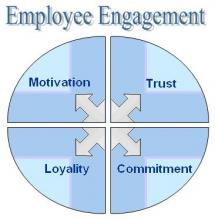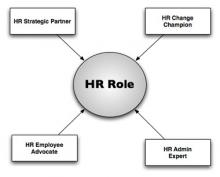Reformers were concerned wit hthe working life of individuals before 1900, whereas employees did start unions and announced strike against poor working conditions, but HR as specialised business function emerged at the end of 1900, before that supervisors used to conduct the hiring, firing, training and pay activities. the article introduces its users to the tradition role of Human Resource Management and the Emerging role of HR, Role of HR is seeing a complete transformation that is stimulated by the changing in the both micro and macro environment of the business.
Human Resource
Human Resource Management
Human resources are the people who make up the workforce of an organization, business sector, or economy. "Human capital" is sometimes used synonymously with "human resources", although human capital typically refers to a more narrow view. A human-resources department (HR department) of an organization performs human resource management, overseeing various aspects of employment, such as compliance with labour law and employment standards, administration of employee benefits, and some aspects of recruitment and dismissal. HR Sets a stage for an open environment in an Organisation. It is bridge between employees and senior management.



